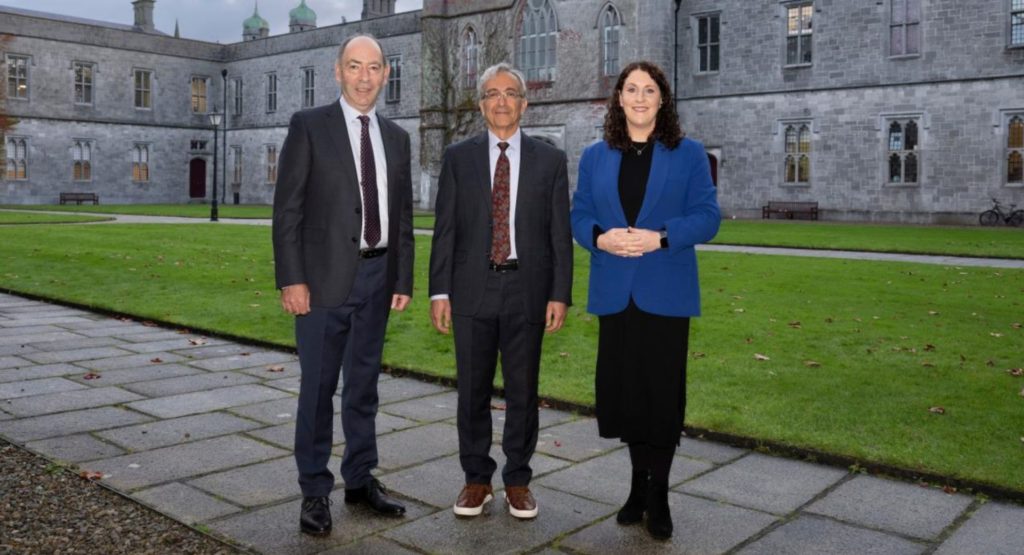Science
University of Galway Partners with Trane Technologies for Sustainability

The University of Galway has established a significant research partnership with the global engineering company Trane Technologies, focusing on the advancement of sustainable technologies in the heating, ventilation, air conditioning, and refrigeration (HVACR) industry. This collaboration, announced on October 3, 2023, marks a three-year commitment to innovate and develop eco-friendly solutions that align with global sustainability goals.
This partnership taps into the extensive expertise of Trane Technologies, which has been a leader in the HVACR sector for over 40 years. The company operates more than 40 sites worldwide, including its manufacturing subsidiary, Thermo King, known for its efficient transport temperature control solutions. The collaboration aims to leverage the university’s research capabilities alongside Trane’s industry experience to address pressing environmental challenges.
Focus on Sustainable Innovations
The joint effort will prioritize the creation of technologies that can reduce energy consumption and greenhouse gas emissions in HVACR systems. By integrating research and development practices, the University of Galway and Trane Technologies intend to explore innovative approaches that enhance efficiency while also contributing to climate resilience.
Professor John McGlynn, who leads the university’s research initiative, emphasized the importance of this partnership. He stated, “Our collaboration with Trane Technologies provides an exceptional opportunity to advance our research in sustainable engineering. Together, we can drive significant change in how HVACR technologies are developed and implemented globally.”
The partnership is expected to foster knowledge exchange and provide students at the University of Galway with valuable exposure to real-world applications of sustainable engineering. This initiative aligns with the university’s commitment to addressing global challenges through innovative research and education.
Long-Term Impact on the Industry
According to Trane Technologies, this collaboration is part of their broader strategy to invest in sustainable practices and technologies. The company has committed to reducing its operational emissions and aims to support its customers in achieving their own sustainability goals.
The partnership represents a significant step forward in the HVACR industry, as both organizations aim to not only meet current demands but also anticipate future needs in an increasingly environmentally-conscious market. The development of sustainable technology is crucial for reducing the impact of HVACR systems, which are known for their substantial energy usage and carbon footprint.
As the partnership progresses, both the University of Galway and Trane Technologies plan to share their findings and innovations with the wider community. This initiative highlights the critical role of academic and industrial collaborations in driving forward the agenda of sustainability and environmental stewardship across various sectors.
The collaboration between the University of Galway and Trane Technologies marks an important milestone in the pursuit of sustainable engineering solutions, demonstrating a commitment to innovation that benefits both the industry and the environment.
-

 Top Stories2 months ago
Top Stories2 months agoTributes Surge for 9-Year-Old Leon Briody After Cancer Battle
-

 Entertainment3 months ago
Entertainment3 months agoAimee Osbourne Joins Family for Emotional Tribute to Ozzy
-

 Politics3 months ago
Politics3 months agoDanny Healy-Rae Considers Complaint After Altercation with Garda
-

 Top Stories3 months ago
Top Stories3 months agoIreland Enjoys Summer Heat as Hurricane Erin Approaches Atlantic
-

 World4 months ago
World4 months agoHawaii Commemorates 80 Years Since Hiroshima Bombing with Ceremony
-

 Top Stories4 months ago
Top Stories4 months agoFianna Fáil TDs Urgently Consider Maire Geoghegan-Quinn for Presidency
-

 Top Stories2 months ago
Top Stories2 months agoNewcastle West Woman Patricia Foley Found Safe After Urgent Search
-

 World4 months ago
World4 months agoGaza Aid Distribution Tragedy: 20 Killed Amid Ongoing Violence
-

 World4 months ago
World4 months agoCouple Convicted of Murdering Two-Year-Old Grandson in Wales
-

 World4 months ago
World4 months agoAristocrat Constance Marten and Partner Convicted of Infant Murder
-

 Top Stories3 months ago
Top Stories3 months agoHike Donegal’s Errigal Mountain NOW for Unforgettable Summer Views
-

 Top Stories3 months ago
Top Stories3 months agoClimbing Errigal: A Must-Do Summer Adventure in Donegal









